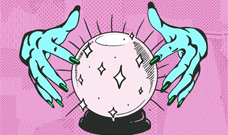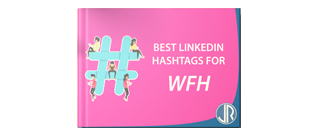Marketing and ethics - where is the limit?
Marketing is all about enlightening the positive aspects of a product or service in order to sell it or improve its public image. Ethics is all about respecting non-spoken rules enabling life in society. Can those concepts be compatible?
Recently, my friend who works in an international company in Hong Kong received an email from her management team.
"We are pleased to inform you of the above promotion program between XXXX and YYYY of the Cervarix cancer vaccination. Under this promotion program, our staff and their dependants can enjoy a privilege offer of $2,200 for a full course X 3 injections (walk-in price at clinic: $3,500 - $4,500). For more details, please refer to the attached files." (all prices are in HKD. 1€ = 10HKD)
The email came with some pamphlets where a local star praised the vaccine.
"For protection to yourself, your spouse or your daughter, please get the Cervical Cancer vaccine".

A miracle: this generous company offers almost 50% discount on something that might save my friend's life! And this is something that can be trusted: it comes from her own management team!
Cautious, I decide to investigate a little - easy thing as I have lots of medical people in my family. Here are some of my findings:
- Cervarix is the least efficient of two vaccines against HPV (the other one being Gardasil)
- the average price of this vaccine in Europe is 110€ (=1100HKD)
- Cervarix is recommended to young female aged 14
- Cervarix works for females aged 15 to 25 who never had sexual relationships or latest one year after their first relation
Based on those discoveries, I decide to read again the pamphlets sent to my friend, surprised to see that her own management team tries to sell her some expensive vaccination inefficient in her situation as well as in most of her colleague's situation.
On the pamphlet, a scanned copy of an original brochure, we can "read":
Is that clearer now?
No?
In the middle of this very long text is written that the vaccine has been successfully tested on women aged 15-25.
Don't say you haven't been warned!
It looks like in Hong Kong health is a business before anything else.
What is ethics?
The ethics of an individual is directly related to its moral; this is what helps a society define what is right and what is wrong. Without ethics, society cannot exist as humans can't live in symbiosis.
For some people, marketing is the art of hiding the truth to sell better. In its very nature, marketing would be against ethics.
I do not share this point of view. As i see it, marketing and ethics are absolutely compatible: only the individual makes the difference.
If I go back to the example I developed earlier, what is unethical is to play with people's fear to get disease to sell expensive and ineffective treatments.
There is an easy way to evaluate the level of ethics you put in a marketing activity: would you present this to your mother?
An ethic practice is a practice that will benefit to all. As we use to say in marketing, the point is to get a "win-win" situation.
How important is ethics in marketing?
The answer to this simple question is multiple.
Some people might think that being ethical is just turning down opportunities to make money.
Personally, I consider ethics as the first principle to respect when doing marketing.
When I was young, I used to spend time in my grandparents home. They often received calls from companies trying to make use of their age to trick them into buying expensive and useless products. They also used to receive mails in which they were always the "exceptional winner of the lottery". They just had to buy X$ of goods to get their exceptional price - usually 1.000.000$... or another gift of a much lower value.
Those unethical behaviors aiming to trap old people helped me to realize how important ethics is when it comes to marketing - and commerce in general.
Beyond simple moral, it is your image that is in the balance each time you behave unethical.
As a professional in marketing, each of your action impacts your image positively or negatively and influences your future success.
American Apparel, the US textile brand created in 1998, is a perfect example of the importance of ethics. In early 2000, the brand rockets, pushed up by its very positive and ethical image. The company is famous for being ethical and treating its employees well. Later, the same company suffers from bad ethic issues based on its CEO actions and on some specific advertising campaigns that shocked people. Within 10 years, American Apparel managed to prove that ethic can greatly impact a company's image and result. (For further details about this case, I encourage you reading "Ethics in marketing: ideology or strategic philanthropy? The case of American Apparel".)
Next time you have the opportunity to make easy money, take a second to think whether what you are doing is ethical.
Julien RIO.
Last update: 2024-04-22 Tags: ethics marketing rules ethical society community


















 Français
Français English
English